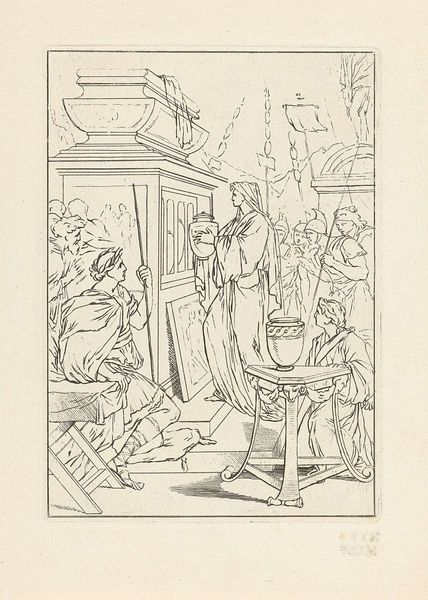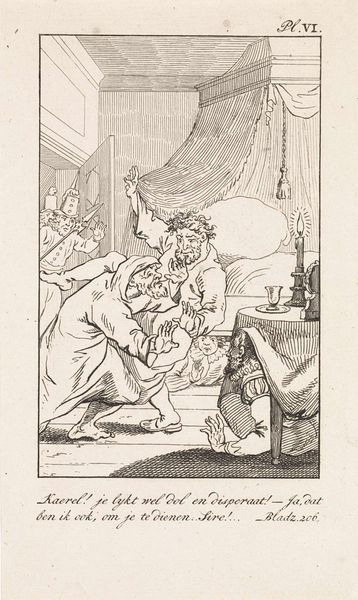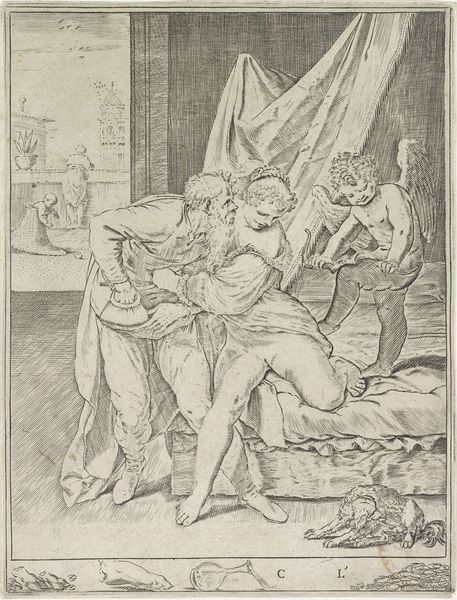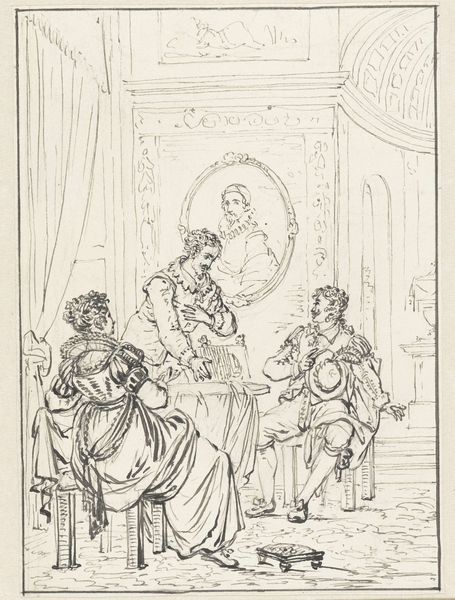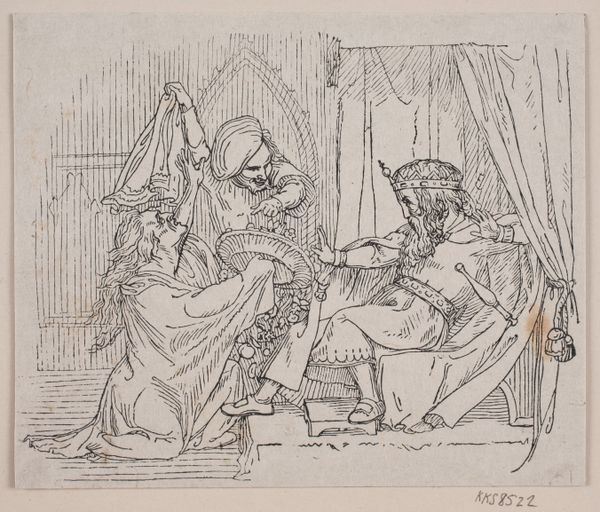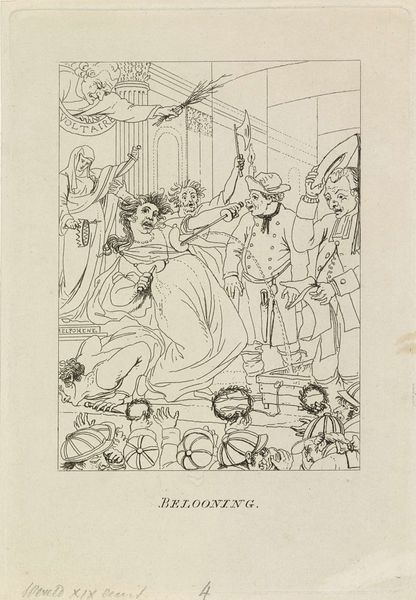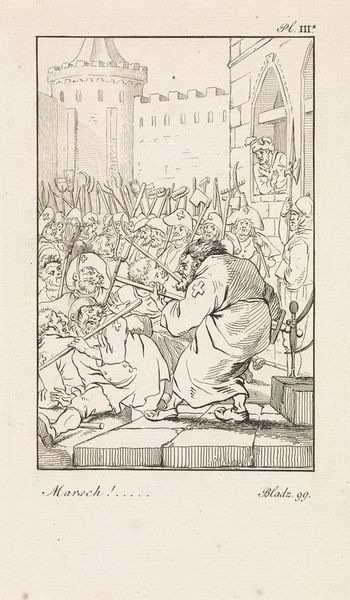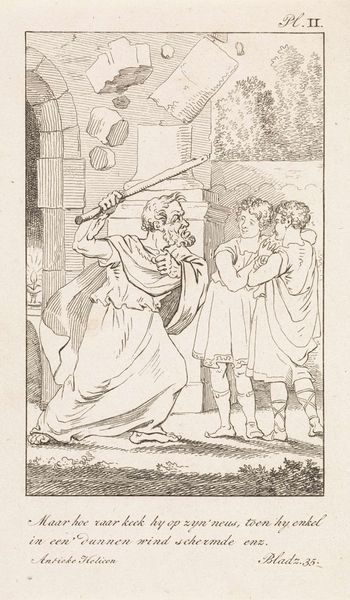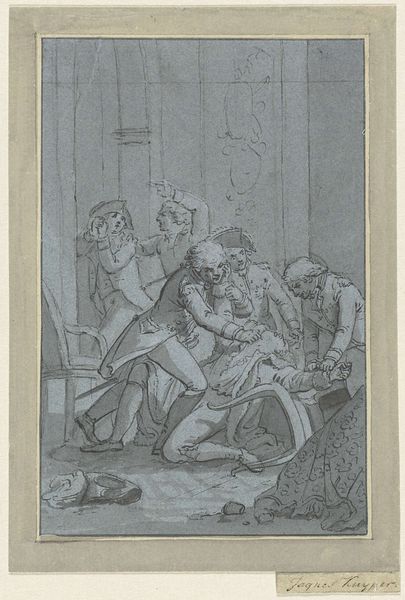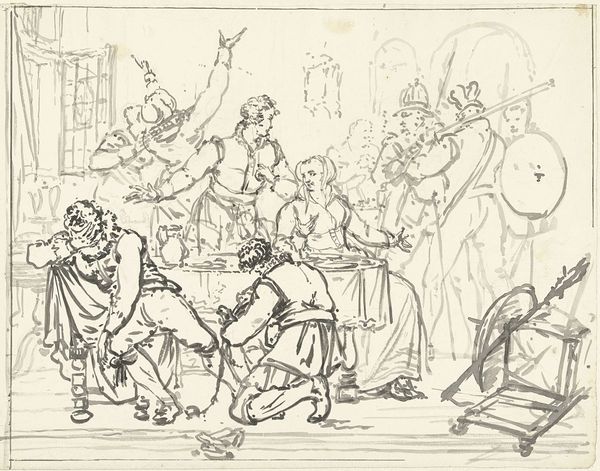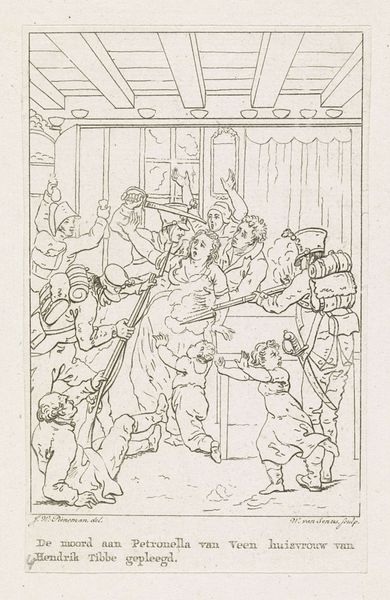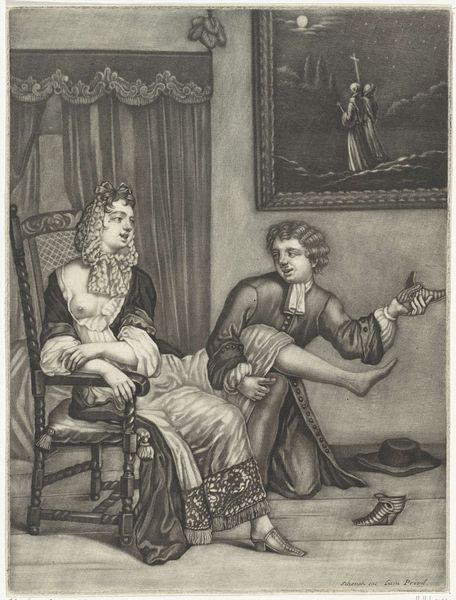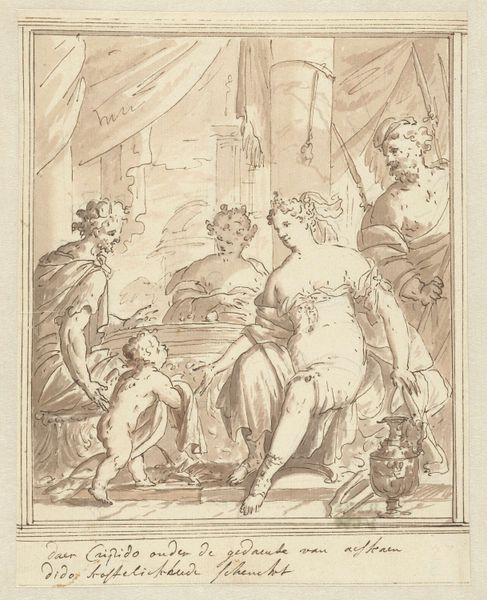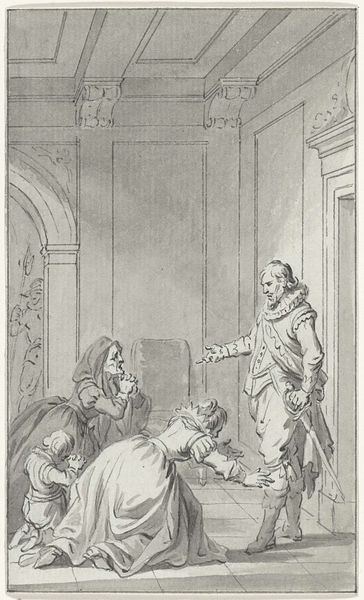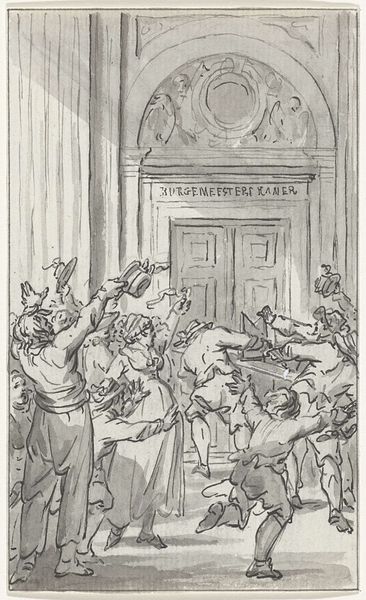
drawing, pen
#
drawing
#
comic strip sketch
#
imaginative character sketch
#
narrative-art
#
caricature
#
sketch book
#
cartoon sketch
#
figuration
#
personal sketchbook
#
idea generation sketch
#
sketchwork
#
romanticism
#
comic
#
sketchbook drawing
#
pen
#
genre-painting
#
storyboard and sketchbook work
#
sketchbook art
Dimensions: height 198 mm, width 121 mm
Copyright: Rijks Museum: Open Domain
Editor: This is "Koning Midas met ezelsoren," or King Midas with donkey ears, a pen drawing from between 1802 and 1809 by Daniël Veelwaard, currently at the Rijksmuseum. It strikes me as a pretty bizarre scene, like a still from a strange play. What symbolic weight do you think is carried in these donkey ears? Curator: The donkey ears are paramount. Throughout history, across various cultures, the donkey has often symbolized foolishness, stubbornness, and a lack of refinement. Placing these ears on King Midas is no accident. Veelwaard is tapping into a deep well of cultural understanding about the dangers of pride and poor judgment. What's intriguing to me is the act of *bestowal*. Someone is literally pointing *at* those ears. Does that suggest something about public shame versus private failing? Editor: That's a good point – someone else is pointing them out. Is this artwork perhaps suggesting something about the relationship between power and public perception? Curator: Precisely. It implies that Midas's folly isn't just a personal failing but a visible symbol of his unsuitability to rule, revealed for all to see. Notice how Veelwaard depicts the figures. Is this perhaps more aligned with comedic character design and farce than with classicism and traditional symbolism? Editor: Yes, they are quite cartoonish, but now I see how even in caricature, the visual cues pull from a shared understanding of what those symbols represent. Curator: Exactly! Even in a comedic, romantic drawing, those loaded symbols retain their power and contribute to our understanding of human nature, which is also on display here. A humorous representation that taps into familiar narratives and cultural understandings. Editor: That makes the artwork richer in my perception!
Comments
No comments
Be the first to comment and join the conversation on the ultimate creative platform.
